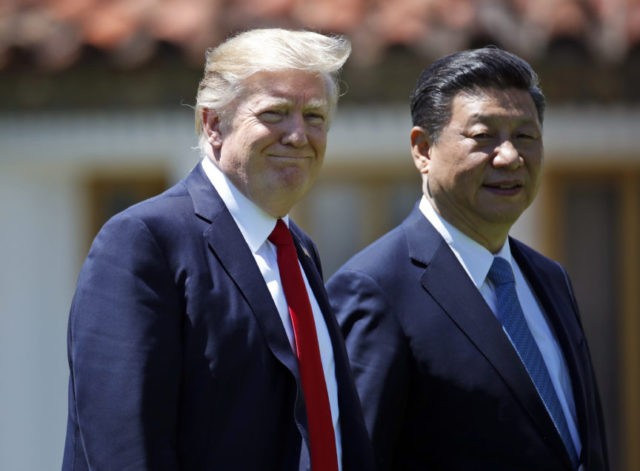A recently-announced purchase of an American financial services corporation by a Chinese owned company may weaken President Trump’s efforts to make America great again and could set back Trump’s trade reform efforts.
The American people want fairness in trade. The problem with allowing any Chinese company to purchase an American company is that Communist China has engaged in numerous unfair trade practices with the United States.
One of the first problems with the trade relationship between the United States and China is the fact that China only likes competition in other markets, but not in China. The communist party in China subsidize and own corporations which guarantees that no firm will fail. This gives Chinese firms a financial leg up on competing with U.S. firms. China has been also accused of stealing trade secrets and intellectual property. Furthermore, Americans can’t go to China an invest in Chinese companies, so why would the United States allow Chinese nationals to invest in U.S. companies?
Financial markets should watch this deal closely to see if the deal will trigger existing law that empower President Donald Trump to block the purchase on national security grounds. If President Trump flexes some muscle, he may be able to leverage trade concessions from China.
A Chinese company, Ant Financial Services, announced a deal in January to acquire MoneyGram International for $880 million. According to Techcrunch, “Dallas-based MoneyGram is a service that handles cross-border currency transfers — remittance payments — in close to 200 countries, where it claims to have 350,000 physical locations. The company recorded $1.4 billion in revenue in 2015, but just 13 percent of which was from digital transactions highlighting its massive offline presence.” The deal must be approved by the US Treasury’s Committee on Foreign Investment in the United States (CFIUS) to be completed. Because of the sensitivity of financial transactions, this deal presents some significant concerns that should be the subject of deep study by CFIUS.
The Department of Treasury chairs CFIUS, which is empowered by law as “an inter-agency committee authorized to review transactions that could result in control of a U.S. business by a foreign person (“covered transactions”), in order to determine the effect of such transactions on the national security of the United States.” According to a report in Bloomberg, late in 2016, President Obama blocked a deal by the Chinese to purchase the American subsidiaries of the Germany’s Axixtron SE, a company that manufactures semiconductors, because “the national security risk posed by the transaction relates, among other things, to the military applications of the overall technical body of knowledge and experience of Aixtron.” There is recent precedent for a President to block a Chinese owned company from purchasing assets in the United States, so don’t be surprised if President Trump also goes down the same road.
Foreign ownership of U.S. companies has become more prevalent. When foreign nationals comes to the United States to purchase a large corporation, that triggers laws regarding the foreign ownership of U.S companies. When this purchaser is a Chinese national and the company provides financial services in the nature of cash transfers, that would seem to merit special oversight and review.
Americans have many choices when transferring cash, yet the act of transferring cash implicates obvious security concerns for citizens as recipients and as people transferring money. Choices for consumers to transfer money include the popular services of PayPal, Western Union, Google Wallet and Walmart transfers. MoneyGram, based in Dallas, Texas, is one of the larger companies and operates in over 200 countries with a global network of approximately 350,000 physical locations. The purchase of MoneyGram would provide Ant Financial with both a foothold in the US market. A transfer of ownership to the Chinese would seem to go against President Trump’s policy of keeping jobs at home and expanding the American owned corporate interests.
This proposed Chinese acquisition is an early opportunity for President Trump to make good on campaign promises on trade. This will be his first big test on the level and nature of Chinese investment in the United States. While China’s protectionists policies are getting worse not better, it seems unfair to give China a foothold into the United States financial markets until China becomes more open to American firms investing in China.
The deal may hurt the U.S. economy. Letting an American financial services corporation be bought out by a Chinese owned company seems to go against the trade policies being pushed by the Trump Administration and may lead to President Trump blocking this transaction using national security as a reason.

COMMENTS
Please let us know if you're having issues with commenting.